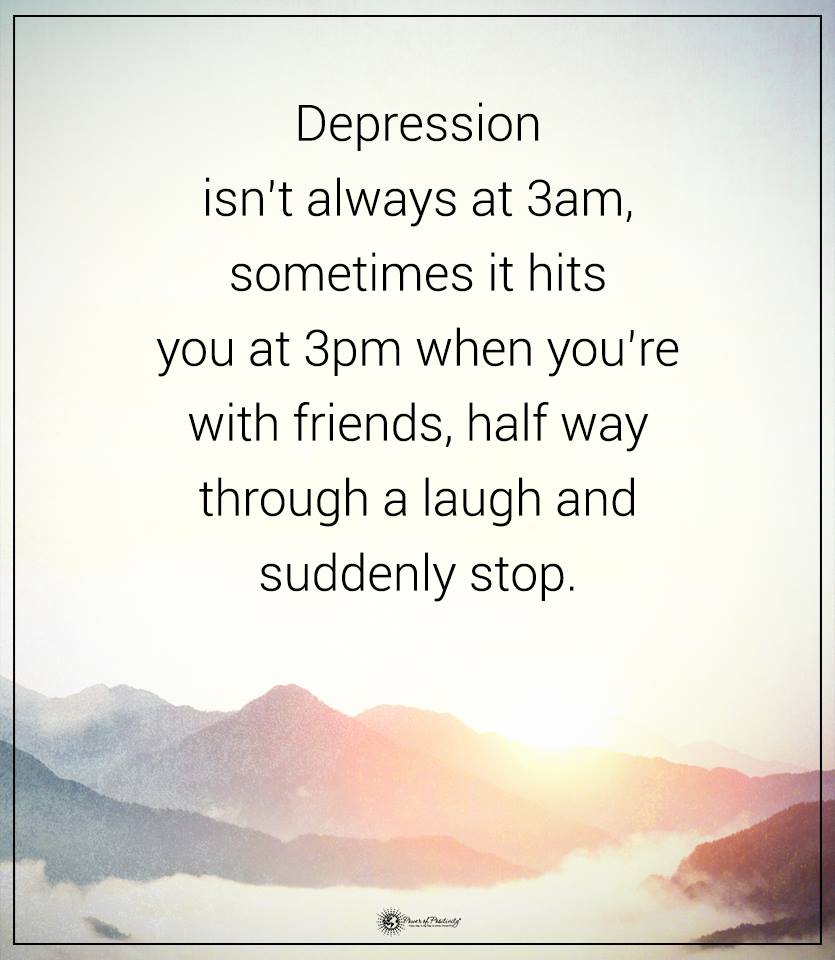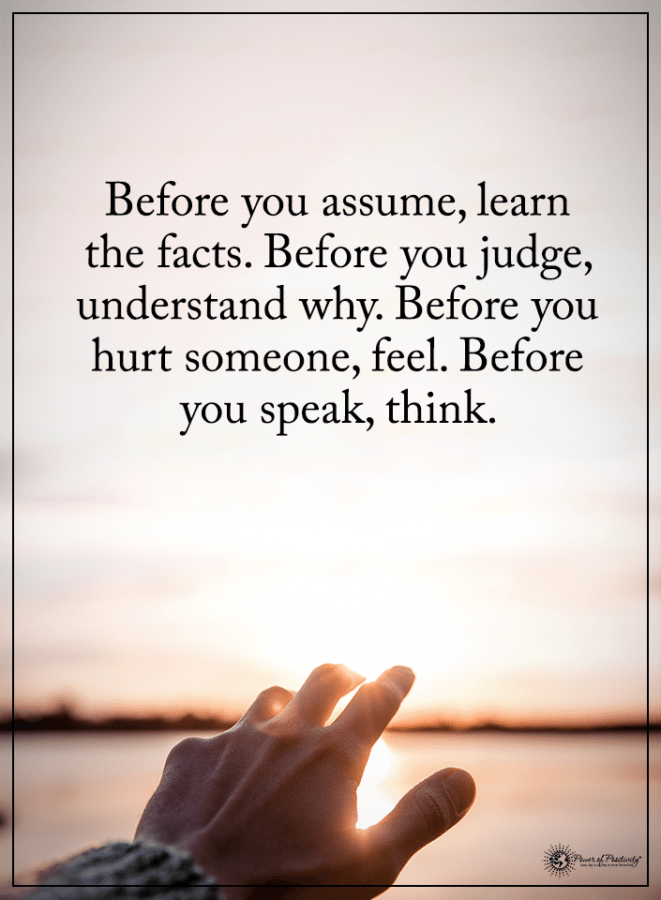Here’s how to be more supportive for someone who’s depressed.
Depression is a multifaceted mental health condition that affects millions worldwide. Its causes are as complex as the condition. It may stem from genetic, biological, environmental, and psychological factors. Understanding these underlying causes is crucial in empathizing with and supporting those who are depressed.
In this article, we will first look at a few key causes of depression, providing a foundation for understanding this condition better. Then, we’ll look into a crucial aspect of support and communication: what not to say to someone with depression. We’ll cover eighteen unhelpful or potentially harmful phrases and offer compassionate alternatives to help foster a supportive dialogue. Once you start recognizing the complex nature of depression and learning the most supportive ways to communicate, you can be better supporters to those experiencing this challenging condition.
What Causes Depression?
Depression is not simple; rather, it is a complex mental health disorder. It comes from a variety of potential causes. Researchers find no singular cause of depression but point out how it may come from many factors. It’s also worth mentioning that research continues to evolve as scientists continue to learn more about our brains.
Genetic Factors and Depression
Depression can run in families. Some studies suggest the presence of a genetic link. If you have a close relative with depression, you are more likely to experience it yourself. However, no single gene is responsible for depression. It’s likely a combination of several genes that increase susceptibility.
Brain Chemistry and Neurotransmitters
The brain’s neurotransmitter systems, particularly serotonin, dopamine, and norepinephrine, play a key role in mood regulation. Imbalances in these chemicals can lead to depressive symptoms. Medications that alter neurotransmitter levels are often used in treating depression, which supports this theory.
Hormonal Changes
Hormonal imbalances can trigger or worsen depression. For instance, changes in hormone levels during periods like puberty, menstruation, pregnancy, postpartum, and menopause can increase the risk of developing depression. Thyroid problems or changes in other hormonal systems can also contribute to depressive symptoms.
Physical Health Conditions
Chronic illnesses like cancer, heart disease, diabetes, and Parkinson’s disease can increase the chances someone will have depression. That is likely due to the stress and physical strain of dealing with a serious illness. Additionally, the medications that doctors prescribe to treat these conditions can have side effects that worsen the depression.
Environmental and Social Factors
Environmental stressors such as exposure to violence, neglect, abuse, or poverty can make individuals more prone to depression. Traumatic events, the death of a friend or loved one, a difficult relationship, work stress, or social isolation can also trigger depressive episodes. Chronic stress can alter brain function, contributing to the onset of depression.
Psychological and Personality Factors
Certain personality traits may also increase the risk of depression. These personality traits can include:
- Low self-esteem
- Being overly dependent
- Self-criticism
- Pessimism
Additionally, traumatic experiences during childhood, such as physical or emotional abuse, can affect the way a person reacts to fear and stressful situations as an adult.
Lifestyle Choices and Depression
Lifestyle factors can influence mental health. Some impactful factors include the following:
- Eating a poor diet
- Being sedentary
- A lack of sufficient sleep
- Substance abuse and alcohol consumption
Each of the above can lead to or exacerbate depression.
Never Say These Things to Someone Struggling With Depression
Before diving into the specifics, it’s essential to recognize the power of our words. Depression isn’t just a bad day or a fleeting feeling of sadness. Our language should reflect an understanding and respect for anyone who is depressed.
1 – “Just cheer up!”
This phrase, though often well-intentioned, oversimplifies depression. It’s not a matter of willpower or a choice that can be easily reversed.
What to Say Instead: “I’m here for you. Is there anything I can do to support you right now?”
2 – “It’s all in your head.”
Being depressed is indeed a mental health issue. Still, this statement can come off as dismissive of the person’s real struggles.
What to Say Instead: “Your feelings are valid. I’m here to listen if you wan to talk about what you’re going through.”
3 – “You have nothing to be depressed about.”
Depression doesn’t discriminate based on external circumstances. This statement invalidates the person’s experience.
What to Say Instead: “Depression can be really tough. I’m sorry you’re going throug this. How can I help?”
4 – “Others have it worse than you.”
Comparisons are unhelpful. They can make someone feel guilty for struggling with their mental health.
What to Say Instead: “I’m sorry you’re feeling this way. Your feelings are important. Let’s work through this together.”
5 – “You’ll get over it.”
This phrase can sound dismissive. It might also imply that the person’s depression is temporary or insignificant.
What to Say Instead: “I’m here for you for as long as you need. We can face this together.”
6 – “You’re just being lazy.”
Depression can drain energy and motivation, making daily tasks challenging.
What to Say Instead: “I see you’re having a hard time. How can I assist you with you daily tasks?”
7 – “Happiness is a choice.”
This phrase oversimplifies the complexities of depression. Sadness and depression are not the same thing. This language may also feel accusatory to someone who struggles with mental health.
What to Say Instead: “I care about your happiness. I’m here to support you in fi ding ways to feel better.”
8 – “This is all in your mind.”
While depression is a mental illness, it’s not something that can be willed away or ignored. (See #2!).
What to Say Instead: “I understand that what you’re experiencing is very real. I’m here to support you.”
9 “You don’t look depressed.”
Depression doesn’t have a specific look. This comment can make people feel misunderstood or like they need to prove their struggle.
What to Say Instead: “Depression affects everyone differently. I’m here to understand and su port you, no matter what.”
10 – “Snap out of it!”
This phrase is not only unhelpful but can also be hurtful. It implies that overcoming depression is easy and within immediate control.
What to Say Instead: “I’m here for you. We can work through this toge her at your pace.”
11 – “You’re just overthinking.”
While overthinking can sometimes lead to mental health struggles, this comment can sound dismissive of the person’s feelings and experiences.
What to Say Instead: “It sounds like you have a lot on your mind. Do you want to talk about it?
12 – “You should get out more.”
Isolation can be both a symptom and a cause of depression. However, this advice is an oversimplification. People feeling depressed often have difficulty even waking up and showering in the morning, let alone going out to interact with the world.
What to Say Instead: “Would you like some company for a walk or a change of scenery? I’m here if you need me.”
11 – “You’re just seeking attention.”
This accusation can make someone feel ashamed or misunderstood, discouraging them from seeking help.
What to Say Instead: “I see that you’re struggling, and I want to help. Your feelings matter to me.”
12 – “You should be more positive.”
Yes. a positive outlook can be beneficial. Still, it’s not a cure for depression. This advice can feel dismissive.
What to Say Instead: “I’m here to help you find moments of positivity, but it’s okay to feel how you feel.”
13 – “Depression isn’t real.”
Denying the existence of depression is both harmful and untrue. It’s a recognized medical condition.
What to Say Instead: “I understand that depression is a serious health condition. How can I support you?”
14 – “Stop feeling sorry for yourself!”
This phrase can make someone feel guilty for their condition, which is beyond their control.
What to Say Instead: “It’s okay to feel upset. Let’s talk about what you’re eeling.”
15 – “You should try being more social.
Socializing can be challenging for someone with depression. This advice can seem like a too-simple solution to a complex issue.
What to Say Instead: “If you feel up to it, maybe we can spend some time together. But no pressure.”
16 – “It’s just a phase.”
Depression is not something people will magically outgrow. This phrase minimizes the person’s experience.
What to Say Instead: “I’m here to support you, no matter how long it takes.”
17 – “You have to be strong.”
These words imply that experiencing depression is a sign of weakness, which isn’t true.
What to Say Instead: “Showing your emotions and asking for help takes strength. I’m proud of you for that.”
18 – “I know exactly how you feel”
Even if you’ve been depressed before, everyone’s experience is different. This sentence can come off as presumptuous.
What to Say Instead: “I may not fully understand your experience, but I’m here to support you in any way I can.”
Final Thoughts on the Things You Should Never Say to Someone Struggling With Depression
Supporting someone with depression requires empathy, patience, and an open heart. Remember, the goal isn’t to fix their problems but to provide comfort and understanding. By choosing our words wisely, we can create a safe space for those battling depression. Your words must help them feel seen, heard, and valued.

















 Community
Community

